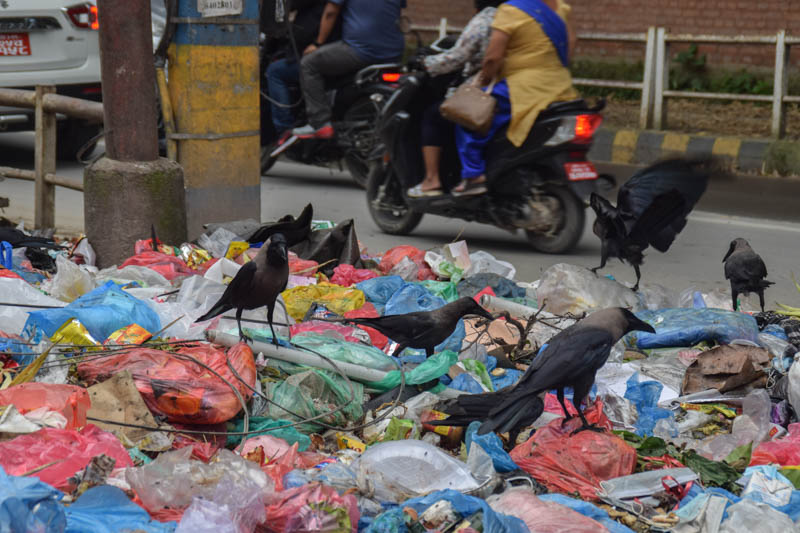

Environmental pollution is on the rise due to the increasing population and inability to manage waste generated by urbanization. On the one hand, it has made cities and villages ugly, and on the other hand, it has reduced the fertility of arable land.
Lack of proper management of waste products from human consumption has created many problems in society. Lately, climate change has been having a global impact in the areas of human lifestyle, production, productivity, money market, and others. Dangerous diseases, calamities, and crises have appeared in the world due to human activities.
Various efforts are being made to prevent, control, and mitigate these disasters and crises. The negative impact of human development on the indigenous agricultural system and the challenges posed by modernizing it has been debated in Karnali by taking the efforts of government, public, non-government and private sectors into a one-door system.
In this regard, a working paper on ‘Natural Organic Fertilizer for Nature’ was presented by Nepal Biomandu Agrarian Pvt. Presenting the working paper, Dr. Pooja Manandhar, Microbiologist of Nepal Bio-Science Research Laboratory, spoke about the benefits of bio-fertilizer production and its use for human life.
“In order to achieve the goal of human health, survival, and sustainable development, emphasis should be laid on the production of organic manure,” said Dr. Manandhar, a microbiologist. He said that research into the use of micro-organisms to transform waste into seals could be very useful for any country.
According to him, the policy arrangement of the Karnali state government to make the non-organic state by making organic manure factories and protecting the health of the people here, and displacing the chemical manure is essential to make it economical and environment friendly. He said that the private sector, as well as the government, should take the lead for that.
During the presentation, Bio-Engineer Arun Lama said that a team of scientists from his own country has prepared organic manure after conducting extensive research to develop healthy and nutritious food for himself and his offspring by adopting the method of harmonizing the social environment and geography without harming the environment. According to him, the project covering the seven goals of sustainable development is economically and economically viable.
“In recent times, streams have turned into drains. How many rivers have dried up,” said Engineer Lama. Stating that manure of any indigenous caste is considered as the highest quality organic manure in the world, he suggested that the imported culture could be displaced and economic growth could be achieved in the country by promoting its products in Nepal.
Minister for Land Management, Agriculture and Cooperatives Chandra Bahadur Shahi of the state government stressed the need to develop and study organic manure in a way that would reach the rural settlements of Karnali through the study of researchers and experts. He advised them to develop technology to help the people in rural areas and to research the availability of organic manure at a low cost. Minister Shahi said that the Karnali government would formulate a policy for the production, development, and expansion of organic manure with the advice of experts.
Secretary at the Ministry Kisan Lal Bhatta said that technical assistance from regional experts was needed for the Karnali state government. Secretary Bhatta said that the government should be involved in the construction of industries and factories related to organic manure production and technical manpower management to increase production in the agricultural sector, conserve biodiversity and create organic provinces.
Seshamani Bhattarai, an agriculture development strategy expert at the ministry, said that the Karnali state government has taken up organic activities in the interest of human behavior and welfare. Participant of the program Krishna Prasad Dhakal said that the project of making human life healthy by converting the wasted garbage into seals would help Karnali.
Chief of Karnali Agro Farm, Raj Bahadur Kunwar, stressed the need to give priority to the production of organic manure in the agricultural policy of the state government. He said that a plan should be formulated to reach the households of Karnali using the expertise of scientists and researchers available in the country.